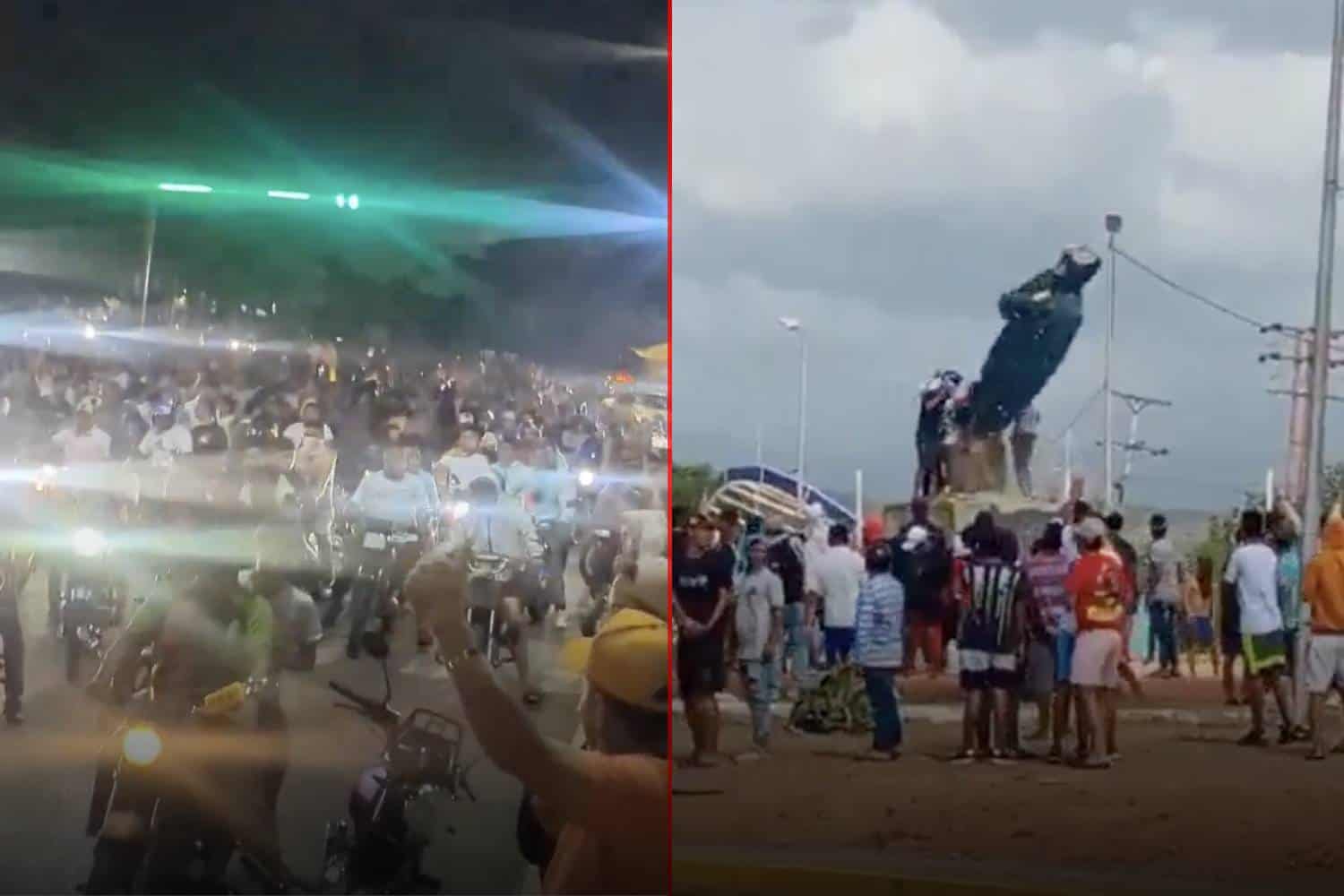Security forces in Venezuela fired tear gas and rubber bullets at protesters disputing the results of Sunday’s election, where President Nicolás Maduro claimed victory.
Venezuela election results spark riots
PLEASE NOTE: The third-party content below is shared on our platform for journalistic purposes. Swisher Post, its parent company, partners and affiliates shall not be held liable for any consequence that arises from the journalistic duties performed in sharing this content.
Thousands of people, some walking for kilometres from slums surrounding Caracas, descended on the city’s centre on Monday evening, heading towards the presidential palace.
The protests erupted after President Nicolás Maduro claimed victory, a result the opposition declared fraudulent.
They insisted that their candidate, Edmundo González, won convincingly with 73.2% of the vote.
Opposition parties united behind González in a bid to unseat President Maduro, who has been in power for 11 years, amid widespread discontent over the country’s economic crisis.
The streets of Caracas saw a heavy military and police presence, with the aim of dispersing protesters and preventing them from approaching the presidential palace.
Crowds chanted “freedom, freedom!” and called for the government to fall, while footage showed burning tyres on highways and police on motorbikes firing tear gas to disperse the large gatherings.
As protests spread across Venezuela, González announced that his campaign had proof of his victory.
Speaking to reporters alongside opposition leader Maria Corina Machado, González stated they obtained more than 70% of tally sheets from Sunday’s election, showing him with more than double Maduro’s votes.
They urged people to remain calm and invited them to gather peacefully at 11 a.m. on Tuesday to celebrate the results.
“I speak to you with the calmness of the truth,” González said, addressing supporters outside campaign headquarters in Caracas.
“We have in our hands the tally sheets that demonstrate our categorical and mathematically irreversible victory.”
Despite these claims, the National Electoral Council, loyal to Maduro’s ruling United Socialist Party of Venezuela, officially declared Maduro the winner, granting him a third six-year term.
In the capital, while most protests remained peaceful, tensions rose when riot-gear-clad national police officers blocked the demonstrators, leading to clashes.
Police used tear gas to disperse protesters, who responded by throwing stones and other objects. A man fired a gun as protesters moved through the financial district, but no one was injured.
The demonstrations followed an election that was one of the most peaceful in recent memory, reflecting hopes for a bloodshed-free transition and an end to 25 years of single-party rule.
The winner faces the challenge of leading a country with an economy in recovery and a population desperate for change.
“We have never been moved by hatred. On the contrary, we have always been victims of the powerful,” Maduro said in a televised ceremony, describing the protests as an attempt to impose a fascist coup d’état.
